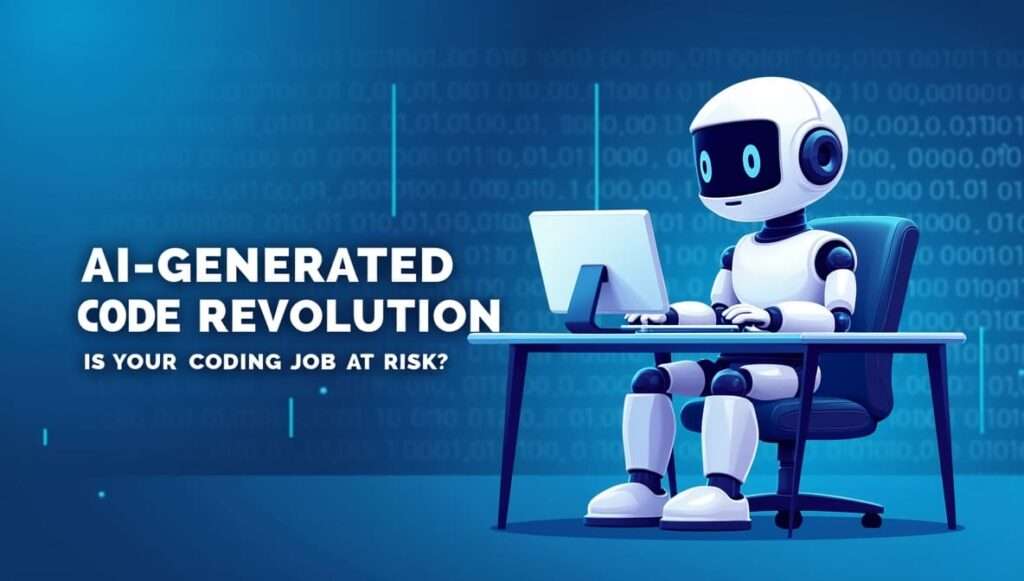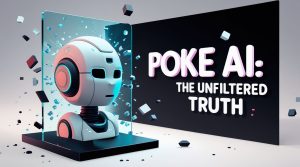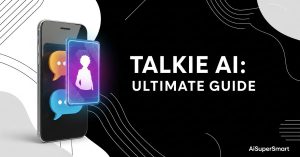Picture this: you’re sipping your morning coffee, firing up your laptop, ready to code the next big thing. But wait—your computer’s already done half the work. Sound crazy? Well, buckle up, because that’s exactly where the tech world is heading, and it’s happening faster than you can say “debug.” At Meta’s first-ever LlamaCon event this week, some of the biggest names in tech dropped a bombshell that’s got everyone talking: artificial intelligence is taking over coding, and it’s not slowing down.
I was there in the crowd, notebook in hand, as Microsoft’s big boss, Satya Nadella, stepped up to the mic alongside Meta’s Mark Zuckerberg. The room was buzzing—hundreds of developers, tech nerds, and curious reporters like me, all waiting to hear what these giants had to say about AI. And boy, did they deliver. Nadella, cool as ever, leaned in and said something that made my jaw drop: “Maybe 20%, 30% of the code sitting in our repositories today—some of our biggest projects—it’s all written by software, not people.”
Let that sink in. One in every three lines of code powering your Windows updates, your Xbox games, or even that Microsoft Teams call you’re dreading? Written by a machine. Not a tired coder in a hoodie, but an AI churning out lines faster than you can type. I scribbled that down so fast I nearly tore the page. This wasn’t some sci-fi movie pitch—this was real, and it was happening now.
LlamaCon: Where AI Dreams Come True
The event itself was a spectacle. Meta rolled out the red carpet at their Menlo Park headquarters, calling it LlamaCon—a nod to their Llama AI models. The place was packed with brainiacs, the air thick with excitement and a little bit of nerves. Everyone knew AI was big, but hearing it straight from Nadella and Zuckerberg? That hit different.
Zuckerberg, with that signature grin, took the stage next. He admitted he didn’t have exact numbers for Meta’s AI-written code yet—fair enough, who’s got time to count lines when you’re running Facebook, Instagram, and WhatsApp? But then he dropped his own bombshell: “We’re betting that in the next year, maybe half our development will be done by AI. And it’s only going up from there.” Half. HALF! I could feel the crowd shift—some folks cheered, others whispered nervously. Was this the future we signed up for?
Zuck wasn’t just talking big. He laid out Meta’s wild plan: they’re building an AI that can upgrade itself, tweaking and boosting their Llama models without humans lifting a finger. Imagine an AI that codes better AI, then that AI codes even better AI. It’s like something out of a tech fairy tale, and Meta’s betting the farm on it.
Google and OpenAI Jump In
But it’s not just Microsoft and Meta riding this AI wave. Over at Google, CEO Sundar Pichai recently spilled the beans during their latest earnings call. “About 30% of our new code is AI-generated,” he said, sounding like a kid who just found the coolest toy. “It’s transformative, and we’re just getting started.” That’s Google—home of your search engine, your maps, your inbox—leaning hard into AI to crank out code.
Related Posts
And then there’s OpenAI, the folks who brought us ChatGPT. Word on the street (okay, CNBC) is they’re sniffing around Windsurf, a hot little startup cooking up AI coding tools. If that deal goes through, OpenAI could turbocharge its own coding game, making it a powerhouse in this AI takeover.
The Big Debate: Vibe-Coding vs. Old-School Skills
Here’s where it gets messy. All this AI talk has sparked a firestorm in the tech world, and I’ve been digging into what it means for the people who actually write code—or used to. There’s this new buzzword floating around: “vibe-coding.” It’s the idea that instead of slaving over every line, developers just nudge AI tools with prompts—like telling a smart robot, “Hey, build me an app,” and watching it go. Sounds cool, right? But not everyone’s sold.
I chatted with Emily Carter, a senior developer at a Bay Area firm, over a shaky Zoom call last week. “AI tools like GitHub Copilot are a godsend,” she told me, her dog barking in the background. “But I’m worried about the newbies. If they don’t learn the nuts and bolts of coding, what happens when the AI screws up? Problem-solving’s the real skill, not just typing prompts.” She’s got a point—coding’s always been about wrestling with bugs and logic, not just pushing a button.

Then there’s Mike Patel, a startup founder I bumped into at a coffee shop near the event. He sees it differently. “This is a game-changer,” he said, spilling a little latte in his excitement. “You don’t need a computer science degree anymore. Anyone with a good idea and the right questions can build something amazing. AI’s opening doors.” Mike’s all in, dreaming of a world where coders are more like creative directors than keyboard warriors.
What’s at Stake?
So, what’s the deal? Are we cheering for AI to take the wheel, or panicking that it’s about to run us off the road? The numbers don’t lie—30% at Microsoft, 30% at Google, and Meta gunning for 50% in a year. That’s a lot of code not coming from human brains. Companies are even talking about “self-iterating” AI—machines that write, test, and fix their own code. It’s wild to think about: a future where humans just sit back and watch the robots build the digital world.
But here’s the kicker: what happens to the coders? I mean, I’m no programmer—I can barely format this article without cursing at my laptop—but I feel for the folks who’ve spent years mastering this craft. Are they about to become babysitters for AI systems, or will they find new ways to shine? Emily thinks it’s the latter. “Humans bring the spark,” she said. “AI can grind out code, but we dream up what’s worth coding.”
The Road Ahead
As I left LlamaCon, the California sun dipping low, I couldn’t shake the feeling that we’re on the edge of something huge. Tech giants are pouring billions into AI, racing to see who can push it furthest. Microsoft’s got its GitHub Copilot, Google’s got its secret sauce, Meta’s got Llama, and OpenAI might just snag Windsurf to round out the party. It’s a full-on AI arms race, and coding’s the battlefield.
For the average Joe—or Jane—starting out in tech, it’s a wake-up call. Forget sweating over syntax for hours; the future might be about mastering how to talk to AI, steering it like a trusty sidekick. But don’t ditch your coding books just yet. Like Mike said, it’s about ideas—and maybe a little grit to keep up with the machines.
So, here we are, folks. AI’s not just knocking on the door—it’s kicking it down and rewriting the rules. Whether you’re a coder, a dreamer, or just someone who likes a good tech story, one thing’s for sure: the age of AI coding is here, and it’s moving at warp speed. Are you ready to ride the wave—or will it crash over you? I guess we’ll find out together.





